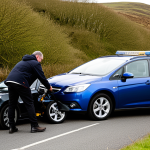Understanding UK Vehicle Recalls
Vehicle recalls in the UK are issued to address safety issues or faults that could affect the performance or safety of a car. UK vehicle recall alerts serve a crucial role in protecting drivers, passengers, and other road users by notifying owners promptly when their vehicle may pose a risk. The vehicle recall process begins when manufacturers or authorities identify a defect that may compromise safety or compliance with regulations.
Several common causes can trigger a recall. These include problems with airbags, braking systems, fuel leaks, or even electronic control units. Such faults, once detected, lead manufacturers to cooperate with official authorities to initiate the recall. In the UK, the main bodies responsible for overseeing car safety recalls include the Driver and Vehicle Standards Agency (DVSA) and the Vehicle and Operator Services Agency (VOSA). They ensure that recalls are publicly announced and that car owners receive timely vehicle recall alerts.
Also read : Your Ultimate Guide to Selecting the Perfect Roadside Assistance Plan in the UK
The importance of these agencies lies in their role in coordinating the recall response, verifying that manufacturers meet legal obligations, and providing updated information through official channels. Through this system, car owners benefit from an organized approach to identifying faults, receiving notifications, and arranging remedy measures such as repairs or replacements.
In summary, understanding car safety recalls UK involves recognizing the pivotal role of recall alerts, the triggers that initiate recalls, and the authoritative organizations managing this vital safety process to keep vehicles roadworthy and safe.
Also read : Mastering the Process: A Comprehensive Guide to Successfully Filing a Complaint Against UK Car Dealerships
How to Track and Receive Recall Alerts
Tracking and receiving vehicle recall notifications is essential for staying informed about any safety issues that may affect your car. The most reliable way to check if your vehicle is part of a recall is through official sources like the government recall database. This resource allows you to enter your Vehicle Registration Number (VRN) and see if there are any outstanding recalls relevant to your car.
To stay updated, signing up for DVSA recall alerts is highly recommended. The Driver and Vehicle Standards Agency sends regular alerts directly to owners when new recalls are issued, ensuring you never miss vital safety information. Similarly, the VOSA recall check tool remains a trusted platform to independently verify your vehicle’s status by matching your details with current recalls.
Using these official channels helps bypass unreliable third-party sites and ensures that recall information you receive is accurate and timely. By regularly checking these alerts, you maintain awareness of any risks and enable prompt action to protect your safety and that of other road users.
Actions to Take if Your Vehicle is Recalled
When you receive UK vehicle recall alerts, knowing exactly what to do in a vehicle recall is vital for your safety and compliance. The first step is to act promptly by verifying the recall details using official sources such as the government recall database or direct communication from the manufacturer. Ignoring a recall notice can put you at risk and may have insurance implications.
Once confirmed, the recall repair process typically involves scheduling an appointment with an authorized service provider or dealership. These providers are equipped to inspect your vehicle and carry out the necessary repairs, replacements, or adjustments free of charge to rectify the identified fault. The recall safety procedure ensures that the remedy meets regulatory standards, restoring your vehicle to a safe condition.
Owners should also be aware of expected timeframes. While some repairs require immediate attention and can take just a few hours, others might need ordered parts, causing delays. Throughout this process, maintaining contact with the recall centre or dealership helps track progress and receive updates on completion. By following these steps carefully, you fulfil your role in the vehicle recall process and contribute to overall road safety.
Legal Rights and Owner Responsibilities
When dealing with car safety recalls UK, it’s crucial to understand your vehicle recall legal rights. Under UK law, if your vehicle is recalled, you are entitled to free repairs or replacements necessary to fix the safety issue. This applies even if the warranty has expired. Knowing this protects you from unfair costs related to faults that are the manufacturer’s responsibility.
Your owner responsibilities in recall include responding promptly to recall alerts and arranging the required repairs through authorized service providers. Neglecting recall notices can jeopardize your safety and may invalidate insurance coverage. It is your duty to monitor official sources regularly to stay informed about any outstanding recalls affecting your vehicle.
If you encounter problems such as delayed repairs, inadequate service, or unclear information, there are specific channels to address these issues. Complaints or unresolved concerns can be taken to government agencies overseeing recalls or consumer protection bodies specialized in consumer protection car recalls. These organizations help ensure your rights are respected and the recall process is properly completed, reinforcing accountability among manufacturers and service providers.
Ongoing Safety & Frequently Asked Questions
Staying vigilant with UK car safety resources is key to maintaining your vehicle’s safety beyond immediate recalls. Recalls address specific faults, but regular maintenance and ongoing monitoring of your car are essential to continued roadworthiness. This means routinely checking official sources and staying updated on any new safety alerts that could affect your vehicle.
A common question in the realm of vehicle recall FAQs is: How often should I check for recalls on my vehicle? The precise answer is to check at least annually or whenever new updates are announced via vehicle recall notifications. Staying proactive helps you catch emerging issues early, reducing potential risks.
Another frequent concern is: What happens if I sell a vehicle with an outstanding recall? Legally, the responsibility to act on UK vehicle recall alerts remains with the current owner until repairs are completed. Prospective buyers should request confirmation that a recall repair has been done. This practice ensures safety for all parties involved.
To monitor recalls in the UK, the best approach is to use government-run databases and sign up for alerts from recognized bodies. These platforms provide timely, accurate information, empowering vehicle owners to make informed decisions. Staying connected with UK car safety resources not only protects you but also contributes to safer roads nationwide.




